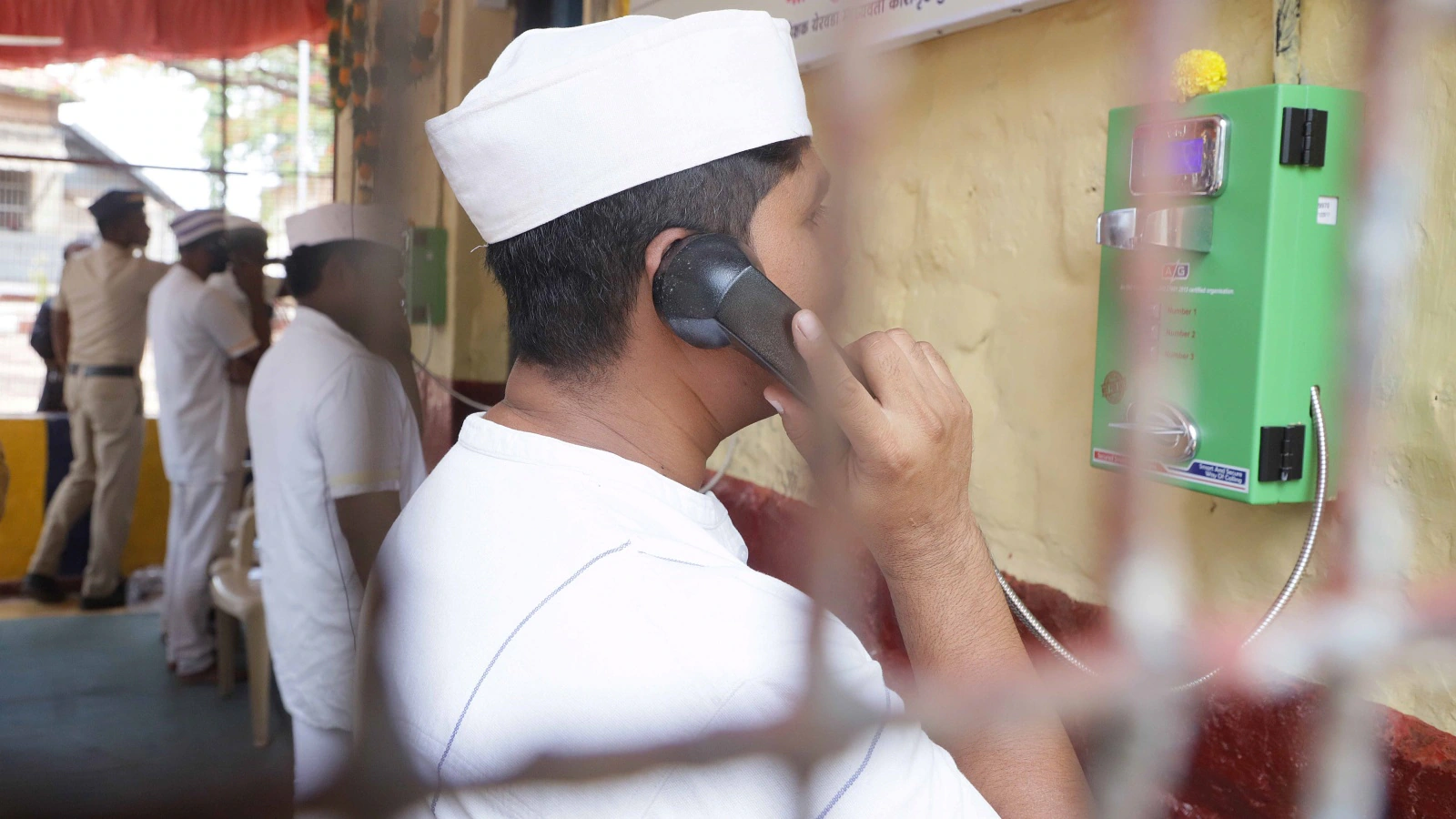- Courses
- GS Full Course 1 Year
- GS Full Course 2 Year
- GS Full Course 3 Year
- GS Full Course Till Selection
- CSAT
- 5 LAYERED ARJUNA Mentorship
- Public Administration Optional
- Online Program
- GS Recorded Course
- NCERT Batch
- Polity Module Course
- Geography Module Course
- Economy Module Course
- AMAC Module Course
- Modern India, Post Independence & World History Module Course
- Environment Module Course
- Governance Module Course
- Science & Tech. Module Course
- International Relations and Internal Security Module Course
- Disaster Management Module Course
- Ethics Module Course
- Essay Module Course
- Current Affairs Module Course
- ABOUT US
- OUR TOPPERS
- TEST SERIES
- FREE STUDY MATERIAL
- VIDEOS
- CONTACT US
Should Convicted Persons Be Allowed to Contest Elections?
Should Convicted Persons Be Allowed to Contest Elections?
13-02-2025

-
In February 2025, the Supreme Court of India began hearing petitions which calls for a lifetime ban on individuals convicted of crimes from contesting elections.
- This legal challenge addresses the issue of criminalized politics in India and whether convicted persons should ever be allowed to hold public office.
Background : Contestants in Jail Have Won Elections
- In the 2024 18th Lok Sabha elections, 2 MPs (currently in jail facing serious criminal charges) have won election
- Amritpal Singh, the leader of Waris Punjab De from Khadoor Sahib seat as an independent candidate and represents over 19 lakh people
- Engineer Rashid from Baramulla.
Has It Happened For The First Time?
No, this is not the first time that candidates in jail have won elections. In fact, this has happened several times in India's history.
- 1977 Lok Sabha Elections: One of the most famous cases occurred during the Emergency period (1975-77) when George Fernandes, a trade unionist and socialist leader, won the Muzaffarpur seat while in jail.
- He was detained during the Emergency but was released before the oath ceremony.
The Charges Against the Winners
- Amritpal Singh:
- Amritpal Singh is linked to the Khalistani separatism movement.
- He calls himself a leader similar to Jarnail Singh Bhindranwale associated with the Khalistan movement.
- Amritpal Singh was arrested on April 23, 2023 since then he has been in Dibrugarh Jail in Assam under the National Security Act (NSA).
- NSA is a law that allows the government to detain a person for up to 12 months without pressing formal charges.
- Engineer Rashid:
- Rashid, a former MLA from Jammu and Kashmir is facing charges under the Unlawful Activities (Prevention) Act (UAPA) related to an alleged terror-funding case of 2017.
- Current Status: Rashid is currently held in Delhi’s Tihar Jail since 2019.
Taking Oath: The First Step in Their Parliamentary Role
- Although the Indian Constitution doesn’t clearly mention what happens when MPs are in jail, there have been incidents where jailed MPs were allowed temporary parole to take the oath.
- According to Article 101(4) of the Constitution, if an MP is absent for more than 60 days without permission, their seat may be declared vacant.
- To prevent this, a jailed MP must inform the Speaker of the Lok Sabha about their inability to attend Parliament.
- This ensures that they can maintain their position even if they are in prison.
Why Both MPs moved to High Courts ?
- In January 2025, Both 2 MPs moved the Delhi High Court and Punjab and Haryana High Court, asking for permission to attend the 2025 Budget Session of Parliament.
- Engineer Rashid (Abdul Rashid Sheikh):
- Court’s Response: The Delhi High Court has asked the National Investigation Agency (NIA) to respond to Rashid’s plea.
- But, NIA opposed bail plea of Engineer Rashid before Delhi High Court
- However, As an interim relief, Rashid was allowed 2-day custody parole to attend the ongoing Parliament session on February 11 and 13.
- Court’s Response: The Delhi High Court has asked the National Investigation Agency (NIA) to respond to Rashid’s plea.
- Amritpal Singh:
- Petition Filed: Amritpal Singh has also approached the Punjab and Haryana High Court seeking permission to attend Parliament Budget 2025 sessions.
- On November 30, 2024, he also submitted a request to the Lok Sabha Speaker to attend Parliament sessions.
- And He was also informed about being absent for 46 days.
- Matter Pending: The court has not yet scheduled a hearing for his petition.
Parallel Current Petition and Arguments:
- Parallelly, In February 2025, a petition was also filed for a lifetime ban on convicted persons from contesting elections.
Petitioners' Argument:
- The petitioners argue that a convicted person, after serving time for a criminal offense, is still unfit to represent the people.
- The petition argues that if convicted individuals cannot hold government jobs, they (convicted of serious crimes) should also be ineligible to become lawmakers.
Central Government's Argument:
- In an affidavit submitted in 2020, the Central Government defended the 6-year disqualification period, saying that MPs and MLAs do not have the same service conditions as regular government employees.
- The affidavit argued that the six-year disqualification period is adequate and that MPs and MLAs are not governed by the same "service conditions" that apply to government servants.
Supreme Court's Action:
- The Supreme Court has asked further responses from the central government and the Election Commission (EC) on the matter,
- This forced a review of whether the 6-year disqualification period should be made permanent in cases involving serious crimes.
Legal Provisions: Representation of the People Act, 1951
The Representation of the People Act, 1951 (RP Act, 1951) governs the qualifications and disqualifications for individuals seeking to contest elections in India.
- Section 8(3)
- Disqualifies a person convicted of a criminal offense and sentenced to imprisonment for 2 years or more from contesting elections.
- The person remains disqualified for 6 years from the date of their release from prison.
- This means that if Amritpal Singh or Engineer Rashid are convicted and their sentence is longer than two years, they will face disqualification under this law.
- Section 8(1)
- Conviction for specific heinous crimes disqualifies a person for life, regardless of the sentence duration.
- These crimes include:
- Rape
- Corruption under the Prevention of Corruption Act
- Unlawful association under the Unlawful Activities (Prevention) Act (UAPA)
- Crimes under the Protection of Civil Rights Act (PCR) for promoting untouchability, among others.
- Section 11:
- Provides the Election Commission (EC) with the power to remove or reduce the period of disqualification for a convicted individual.
- In September 2019, the EC used this power to reduce the disqualification period for Prem Singh Tamang, Chief Minister of Sikkim, from 6 years to 13 months after a conviction under the Prevention of Corruption Act.
Past Supreme Court Decisions and Their Impact
- Association for Democratic Reforms (ADR) Case (2002)
- The court ordered the disclosure of criminal records for all candidates contesting elections.
- This judgment was a critical step toward transparency in politics and combating the criminalization of politics.
- CEC vs Jan Chaukidar (2013)
- The Patna High Court's interpretation of the RP Act, 1951, stated that undertrial prisoners could not contest elections because they were not eligible to vote under Section 62(5), which prohibits persons in jail from voting.
- The Supreme Court endorsed this judgment, but the Parliament amended the RP Act in 2013, allowing undertrial prisoners to contest elections, which overturned the Court’s interpretation.
- Lily Thomas (2013)
- The court struck down Section 8(4) of the RP Act, which allowed a sitting legislator to continue in office after being convicted, provided they appealed the conviction.
- The judgment ruled that this provision was unconstitutional as it violated political justice and the principle that a convicted individual should immediately lose their seat in the legislature.
Electoral Context and Data on Criminalization of Politics
- Criminalization of Politics in India:
- ADR Report (2024): The Association for Democratic Reforms (ADR) revealed disturbing data:
- 251 MPs (46%) out of 543 elected in 2024 have criminal cases against them.
- 171 MPs (31%) face serious charges, including crimes such as rape, murder, attempt to murder, and kidnapping.
- Criminal background significantly impacts electoral outcomes. Candidates with criminal backgrounds have a 15.4% chance of winning elections, compared to 4.4% for candidates without a criminal record.
- ADR Report (2024): The Association for Democratic Reforms (ADR) revealed disturbing data:
- Law Commission Reports and EC Recommendations:
- The Law Commission of India has issued reports (1999, 2014) suggesting that persons charged with crimes punishable by more than five years in prison should not be allowed to contest elections.
- The Election Commission has repeatedly highlighted the need to reduce the criminalization of politics, stressing the importance of electoral integrity and public trust in the political system.
|
Also Read |
|
| NCERT Books For UPSC | |
| UPSC Monthly Magazine | Best IAS Coaching in Delhi |



